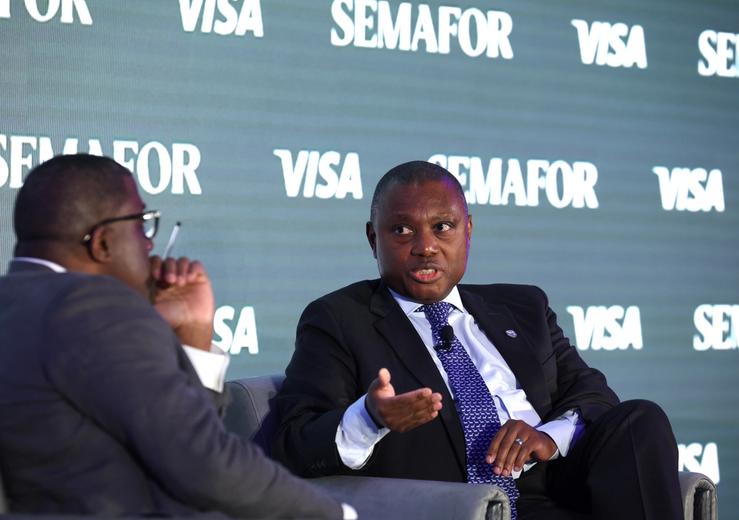The Scoop
The chief executive of Africa’s largest bank by asset value has added his voice to growing frustration on the continent over the valuations of Africa’s sovereign debt by the big three global credit ratings agencies.
Sim Tshabalala, CEO of Johannesburg-based Standard Bank, said his institution’s own analysis often did not align with that of Fitch, Moody’s, and Standard & Poor’s. “Our statistical work suggests that the average African sovereign is rated four rungs below what their fundamentals would imply,” he told Semafor in a wide-ranging interview. Tshabalala said if the analysis was applied to South Africa, the continent’s most advanced economy would go from a BB- rating to BBB, translating into savings of nearly $3 billion in borrowing costs annually.
The big three New York-based agencies have been criticized for not having teams with deep understanding of African economies, which critics say leads to an overestimation of risk, which in turn forces many countries to pay too much interest on their debt.
The African Union is set to launch its own credit ratings agency this year to help challenge the establishment with additional transparency for African sovereign ratings. But Tshabalala was more circumspect about the impact of an African agency. “If Africa set up its own rating agency, how long would it take before it gained the credibility similar to the credibility that the big three have?”
Know More
Tshabalala, who has led Standard Bank since 2017, said his role has become increasingly focused on geopolitics and geoeconomics as he works to shield the bank from global uncertainty, particularly surrounding changes in global tariff systems led by the United States.
“It’s a big topic and we spend a lot of time on it,” he said. The bank is preparing for both best- and worst-case scenarios, estimating that a standard 10% US tariff on exports would have a “not so bad” impact on African economies.
However, Tshabalala warned that higher tariffs proposed by former President Donald Trump on “Liberation Day” on April 2 would trigger a host of economic challenges for countries dependent on exports. Standard Bank estimates such tariffs could reduce economic growth by as much as 1.5 percentage points from current projections of 4% GDP growth this year.
With the likely expiration of the US-Africa trade agreement known as AGOA — the African Growth and Opportunity Act — Tshabalala said key sectors such as agriculture, automotive and mining in South Africa would be hit hardest if the deal is weakened or ends altogether. Still, he noted that South Africa, currently in negotiations with US trade officials, has some leverage due to its dominance in sectors like platinum and other rare earth minerals critical to global growth.


